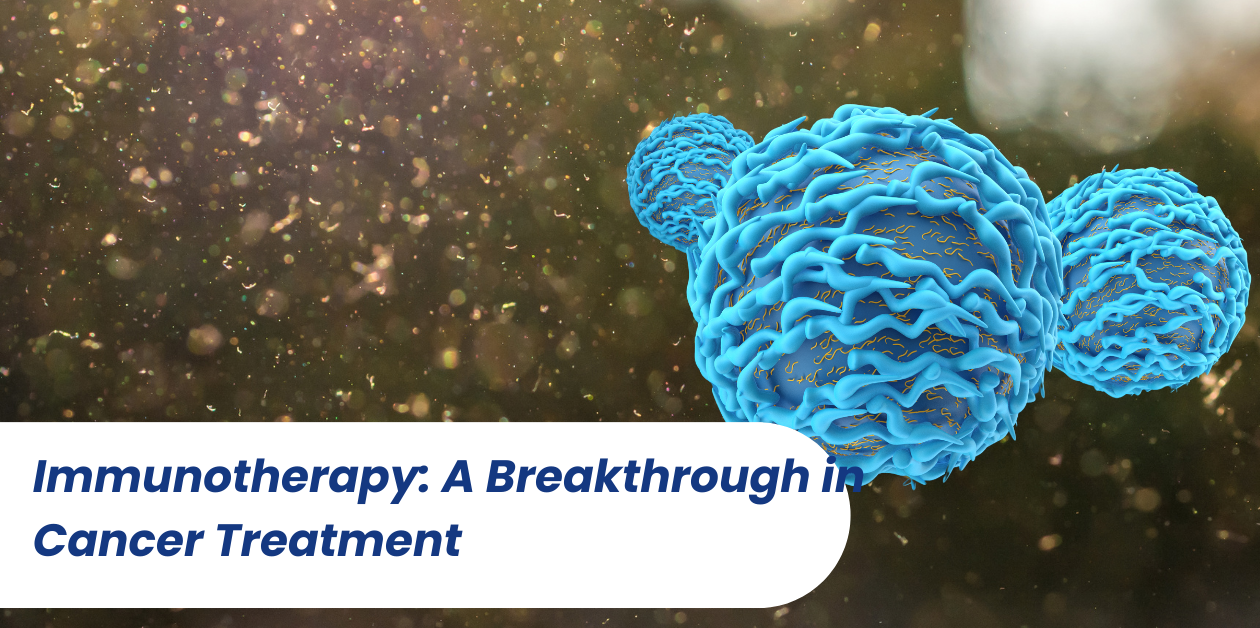
As an oncologist, I’ve seen remarkable progress in cancer treatments over the years. One of the most promising advancements is immunotherapy—a treatment designed to harness the power of your immune system to fight cancer. For patients battling cancers like melanoma, lung cancer, and more, immunotherapy has emerged as a game-changer, offering hope in cases where other treatments may have fallen short.
What is Immunotherapy?
Immunotherapy is a type of cancer treatment that uses the body’s immune system to identify and destroy cancer cells. Unlike chemotherapy or radiation, which target cancer cells directly, immunotherapy strengthens or manipulates the immune system to do the work. This approach can offer a more targeted, and sometimes less toxic, alternative to traditional cancer therapies.
There are several types of immunotherapy, including:
- Checkpoint inhibitors: These drugs help the immune system recognize and attack cancer cells.
- CAR T-cell therapy: A process in which a patient’s T cells are genetically engineered to target cancer cells.
- Cancer vaccines: Vaccines designed to trigger an immune response against specific cancer types.
- Monoclonal antibodies: Lab-made proteins that can bind to cancer cells and mark them for destruction by the immune system.
How Does Immunotherapy Work?
The immune system is adept at fighting infections and diseases, but cancer cells can sometimes hide from immune detection. Immunotherapy works by removing the “brakes” that cancer cells use to evade immune responses. This allows the immune system to recognize better and attack these rogue cells.
Checkpoint inhibitors, for example, block proteins like PD-1 or CTLA-4 on immune cells, which normally act as checkpoints to prevent immune overactivity. When these proteins are blocked, the immune system becomes more aggressive toward cancer cells. This has been particularly effective in treating cancers such as non-small cell lung cancer, melanoma, and certain types of kidney and bladder cancers.
Benefits of Immunotherapy
One of the most significant benefits of immunotherapy is its potential for long-lasting effects. In many cases, patients who respond to immunotherapy treatments continue to experience remission even after the therapy has ended. Some patients with advanced cancer have even seen their tumors shrink dramatically or disappear.
Immunotherapy also tends to have fewer side effects than chemotherapy or radiation, which can damage healthy cells. Instead of attacking both healthy and cancerous cells, immunotherapy primarily enhances the immune system’s ability to target cancer.
Challenges and Considerations
While immunotherapy offers immense promise, it’s not without challenges. Not all patients respond to this treatment, and predicting who will benefit remains a key area of research. Additionally, some patients experience immune-related side effects, where the immune system may attack healthy tissues. These side effects can range from mild inflammation to more severe complications in organs like the liver, lungs, or skin.
It’s also important to note that immunotherapy may not be a stand-alone solution for every cancer type. For some, it works best when combined with other treatments like chemotherapy, radiation, or surgery. The success of immunotherapy varies depending on the type and stage of cancer, as well as individual patient factors.
Immunotherapy and the Future of Cancer Treatment
Immunotherapy represents a new frontier in cancer treatment, one that is still evolving. Ongoing research and clinical trials are exploring how to make this therapy even more effective, and we’re learning more every day about which cancers are most responsive.
As an oncologist, I believe in providing patients with the most advanced, personalized care possible. Immunotherapy allows us to offer new treatment avenues, particularly for those who may have run out of traditional options. It’s a testament to how far we’ve come in understanding and treating cancer, and I’m optimistic about the future.
If you or a loved one are considering immunotherapy, discussing the potential benefits, risks, and treatment options with your oncology team is essential. Together, we can explore whether this innovative treatment could be part of your cancer care plan.
Why More Young Adults Are Developing Colorectal, Pancreatic & Other GI Cancers …
By Dr. Saadvik Raghuram Y – Leading Oncologist in Hyderabad World Cancer …
Why Are So Many Young People Getting Cancer Today? Across the world, …
January is Cervical Cancer Awareness Month in India, and this article explains …
Cancer-Related Fatigue (CRF) is one of the most common—and most underestimated—symptoms experienced …
Every year, Aplastic Anemia Awareness Month shines a spotlight on a rare …

